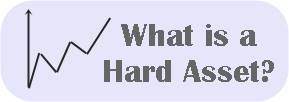
Table of Contents
Underlying Asset Meaning
As per the Underlying asset meaning, it is the set of financial asset on which the price of derivatives has been based. An instance of derivative is the option. A derivative serves to be a major Financial Instrument with a specific price and based on some distinct asset.

Underlying assets are to impart value to the respective derivatives. For instance, an option on ABC stock will be giving the holder the overall right to sell or buy ABC at the respective strike price upwards until the same expires. The underlying asset for the given option serves to the ABC stock.
It can be utilized for identifying the item within the given agreement for providing value to the respective contract. The same concept is also helpful in supporting the security in the given agreement. The involved parties in the agreement agree to exchange the existing security to form a part of the respective derivative contract.
Getting an Understanding of Derivative Contracts
The price of futures or option contract is known to be derived from the underlying asset’s price. In case of an option contract, it is expected that the writer should consider either buying or selling the underlying asset to the concerned buyer on the given date at the price that has been agreed upon. The buyer does not remain obligated to purchasing the specific underlying asset. However, they are still capable of exercising the respective rights in case they wish to do the same. In case the given option is going to expire, and the respective underlying asset might not have moved positively for making the execution of option worthwhile, the given buyer can allow the expire while losing the amount that they must have paid for the given option.
Talk to our investment specialist
Futures tend to be Obligation to both the buyer as well as the seller. The future’s seller would agree for providing the underlying asset at its expiry. At the same time, the buyer would agree towards buying the given asset at its expiry. The price that is received and paid tends to be the price at which the buyers & sellers entered the futures contract.
Most of the future traders are known to close out the respective positions before expiration as hedge fund and retail traders have minimal requirement of taking physical possession of the products –like barrels of oil, for instance. However, they can consider buying & selling the contract at a single price. If the same would move favorably, they can consider exiting the trade and making a profit along the way. Futures tend to be derivatives as the price of some oil futures contract is dependent on the oil price movement, for instance.
All efforts have been made to ensure the information provided here is accurate. However, no guarantees are made regarding correctness of data. Please verify with scheme information document before making any investment.












